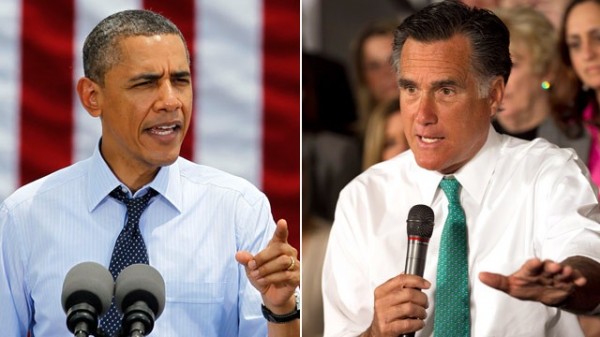Presidential Race Focuses On Foreign Policy, Lacks Specifics


As turmoil in the Middle East grows, the presidential race focuses on foreign policy, with candidates trying to give voters an idea of the global landscape's trajectory over the next few years. The presidential election has become less linear and the candidates are being forced to flex their foreign policy muscles. Though analysts agree the economy is the central issue of this campaign, the emerging foreign policy debate has opened a refreshing new narrative. Within this narrative, however, Americans are struggling to find substance.
Last month President Obama delivered a speech before the UN General Assembly touting his vision for the future of American policy abroad. In response, Republican nominee Mitt Romney published an Op-Ed in the Wall Street Journal and his campaign criticized Obama’s plan. Since then, Romney has further addressed foreign policy, such as in his speech at the Vermont Military Institute, in which he outlined his positions on Middle East policy.
The President’s speech focused on encouraging free speech throughout the world, especially in fledgling democracies in the Middle East and North Africa. He iterated his continuing support of the new democratic movement in the Middle East despite recent anti-American demonstrations and his continuing effort to bring doers of violence to justice. On Iran, Obama emphasized that time for diplomatic efforts against nuclear weapon development “is not unlimited,” but failed to expand on what could come next.
In response, Romney’s article highlighted his own vision for the Middle East and criticized the President’s plan as weak and passive. Romney writes, “our values have been misapplied—and misunderstood—by a president who thinks that weakness will win favor with our adversaries.” This critical strategy is a risky move for the Romney campaign after his criticism of the President’s response to the attack on the American embassy in Libya came under fire from pundits on both sides of the aisle.
When touting his own plan for United States policy abroad, Romney centered on the importance of maintaining American status and upholding American values. He writes that Israel must be held as the closest American ally in the Middle East and that Iran must get the message that their nuclear development is unacceptable. Last, Romney writes that foreign policy must “restore the three sinews of our influence: our economic strength, our military strength and the strength of our values.”
Obama’s vision centers on diplomatic negotiation, support of budding democracy, tolerance of religious and regional differences, and perhaps a subtle distancing from a growingly conservative Israel. Romney supports new democracy as well; his plan just places greater emphasis on ties with Israel, a hard line with Iran, with American democracy and values prevailing.
While it is not difficult to distinguish between the tones of the candidates, the differences in policy that would be implemented remains unclear. Both candidates fail to offer solutions to the bloodshed and increasing chaos in Syria or to the rising potential for violence between Iran and Israel. Neither addresses increased use of drone technology or its implications in the Middle East, nor specifics about strained US relations with Pakistan or Egypt. For undecided and Independent voters struggling to differentiate between what these candidates have to offer, this new dialogue does not offer much help.
It is important that this campaign is expanding beyond domestic issues to include each candidate’s vision for the United States’ role in this rapidly changing world. The American people can only hope that as the debate continues, candidates will risk taking strong stances on specific policy issues.



